 W
WGrigoris Pieris Afxentiou was a Greek-Cypriot guerrilla fighter who fought against the British rule of Cyprus as a member of EOKA. He was second-in-command to general Georgios Grivas and used the pseudonym Zidhros (Ζήδρος), the name of a famous 18th-century brigand.
 W
WOdysseas Androutsos was a hero of the Greek War of Independence.
 W
WZacharias Pantelakos, nicknamed Barbitsiotis but more commonly known as kapetan Zacharias was a Greek klepht in the Peloponnese during the last decades of Ottoman rule over Greece. He is described by Kyriakos Kassis as the best thief of Taygetus.
 W
WIoannis Vlachos, better known as Daskalogiannis was a wealthy shipbuilder and shipowner who led a Cretan revolt against Ottoman rule in the 18th century.
 W
WIon Dragoumis was a Greek diplomat, philosopher, writer and revolutionary.
 W
WRigas Feraios or Velestinlis ) ; 1757 – 24 June 1798) was a Greek writer, political thinker and revolutionary, active in the Modern Greek Enlightenment. A victim of the Balkan uprising against the Ottoman Empire and a pioneer of the Greek War of Independence, Rigas Feraios is remembered as a Greek national hero.
 W
WAngelis Gatsos (1771–1839) was a Slavophone Greek (Bulgarian) military commander during the Greek War of Independence. He was born in the village of Sarakinovo, today known as Sarakinoi.
 W
WJohn Costas, born Ioannis Papakostas, was a Greek revolutionary and veteran of the Second Boer War.
 W
WTheophilos Kairis was a Greek priest, philosopher and revolutionary. He was born in Andros, Cyclades, Ottoman Greece, as a son of a distinguished family.
 W
WDimitrios Kallergis was a fighter of the Greek War of Independence, major general, politician and one of the most important protagonists of the 3 September 1843 Revolution.
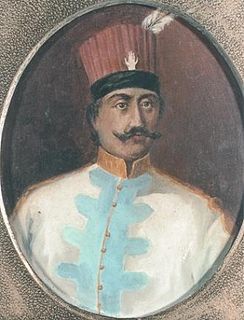 W
WLambros Katsonis was a Greek revolutionary hero of the 18th century; he was also a knight of the Russian Empire and an officer with the rank of colonel in the Imperial Russian Army, decorated with an Order of St. George, IV class medal.
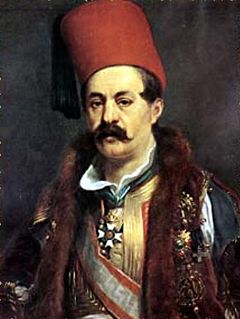 W
WIoannis Kolettis was a Greek politician who played a significant role in Greek affairs from the Greek War of Independence through the early years of the Greek Kingdom, including as Minister to France and serving twice as Prime Minister.
 W
WMichail Korakas was a Cretan revolutionary, who played a major role in successive Cretan revolts against the Ottoman Empire in 1821–29, 1841, 1858, 1866–69, and 1878.
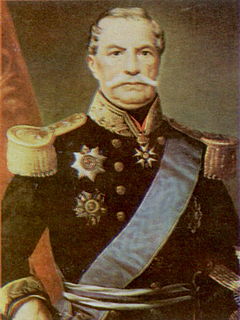 W
WAntonios Kriezis was a Greek captain of the Hellenic navy during the Greek War of Independence and a Prime Minister of Greece from 1849 to 1854. Kriezis was born in Troezen in 1796 to an Arvanite family. Literally translated from Albanian, his surname means "black head".
 W
WDimitrios Makris was a Greek chief klepht, armatole military commander and fighter of the 1821 revolution. He was a member of Filiki Eteria and one of the most powerful chieftains in West Central Greece.
 W
WYannis Makriyannis, born Ioannis Triantaphyllou, was a Greek merchant, military officer, politician and author, best known today for his Memoirs. Starting from humble origins, he joined the Greek struggle for independence, achieving the rank of general and leading his men to notable victories, most notably the successful defence of Nafplio in the Battle of the Lerna Mills. Following Greek independence, he had a tumultuous public career, playing a prominent part in the granting of the first Constitution of the Kingdom of Greece and later being sentenced to death and pardoned.
 W
WGavriil Marinakis was the hegumenos of Arkadi Monastery and a fighter of the Cretan Revolution of 1866. He was killed in November 1866 during the siege of the monastery by the Ottoman forces.
 W
WKyriakoulis Mavromichalis (Greek: Κυριακούλης Μαυρομιχάλης, was a Greek revolutionary who fought in the Greek War of Independence.
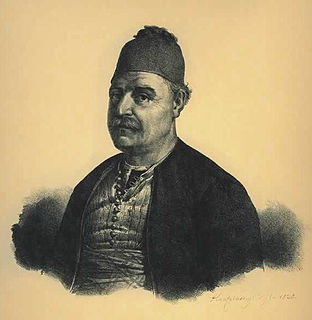 W
WAndreas Vokos, nicknamed Miaoulis, was a Greek admiral and politician who commanded Greek naval forces during the Greek War of Independence (1821–1829).
 W
WNikolaos Galatis (1792–1819) was a pre-revolutionary figure from Ithaca, Greece and one of the founding members of the Filiki Etairia, the secret revolutionary society. He was initiated into the society by Nikolaos Skoufas in Odessa, and in turn he initiated many others into the revolutionary society, some of whom became important figures in the events of 1821. Despite his efforts in promoting the society in its early years, he was accused of various misdemeanours and follies, and was eventually assassinated by other members of the society just a few years after joining.
 W
WEvagoras Pallikarides was a Greek Cypriot revolutionary and poet, and member of EOKA during the 1955–1959 campaign against British rule in Cyprus.
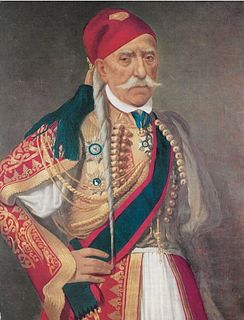 W
WDimitrios Koliopoulos Plapoutas was a Greek general who fought during the Greek War of Independence against the rule of the Ottoman Empire.
 W
WNikolaos Plastiras was a Greek general and politician, who served thrice as Prime Minister of Greece. A distinguished soldier known for his personal bravery, he became famous as "The Black Rider" during the Greco-Turkish War of 1919–1922, where he commanded the 5/42 Evzone Regiment. After the Greek defeat in the war, along with other Venizelist officers he launched the 11 September 1922 Revolution that deposed King Constantine I of Greece and his government. The military-led government ruled until January 1924, when power was handed over to an elected National Assembly, which later declared the Second Hellenic Republic. In the interwar period, Plastiras remained a devoted Venizelist and republican. Trying to avert the rise of the royalist People's Party and the restoration of the monarchy, he led two coup attempts in 1933 and 1935, both of which failed, forcing him to exile in France.
 W
WAnastasios Polyzoidis was a Greek politician and judicial official.
 W
WGeorgios Soulios was a Greek guerrilla fighter of the early 20th century. He participated in the Macedonian Struggle (1904-1908), as well as in the struggle for the establishment of the Autonomous Republic of Northern Epirus (1914).
 W
WGiannis Stathas was a Greek armatolos during the pre-Greek Revolution era in Greece. He later became leader of a small fleet in the Aegean Sea.
 W
WAlexandros Svolos was a prominent Greek legal expert, who also served as president of the Political Committee of National Liberation, a Resistance-based government during the Axis occupation of Greece.
 W
WGeorgios Theocharis was a Greek merchant and notable figure of the pre Greek Revolution period and a fellow of Rigas Feraios.
 W
WEmmanouil Tombazis was a Greek naval captain from Hydra, active during the Greek War of Independence, who was appointed Commissioner of Crete for the Greek provisional government in 1823–1824 and naval minister for a short period in 1828.
 W
WIakovos "Yiakoumakis" Tombazis was a merchant and ship-owner from the Greek island of Hydra who became the first Admiral of the Greek Navy during the Greek War of Independence against the Ottoman Empire (1821-1829). Tombazis' date of birth is not known but some historians suggest 1782. He was the son of Nikolaos Tombazis and brother of Emmanouil Tombazis. As a businessman, he was shrewd and was the first to build greenhouses in Greece. In 1818, he was initiated into the Filiki Eteria which was preparing the ground for the revolt. When the war broke out, his fellow islanders made Tombazis admiral of the fleet of Hydra. He took part in several clashes against the Sultan's Navy in the eastern Aegean and soon realized that the Greek warships, being mostly converted and armed merchantmen, could not face the Ottoman ships of the line in conventional combat. He therefore proposed the use of fireships instead, and sent Dimitrios Papanikolis to burn the Turkish frigate Moving Mountain anchored at Eresos on Lesbos. Tombazis met fellow Hydriote Andreas Miaoulis in 1822 and reportedly realized the man's military genius, proposing him as admiral of the fleet. After Tombazis withdrew from the admiralty, he continued to support the revolution with his ships and money. He died in 1829. The Greek destroyer Tombazis (D-215) was named for the Admiral in 1976.
 W
WKitsos (Kyriakos) Tzavelas was a Greek fighter in the Greek War of Independence and later Greek Army General and Prime Minister of Greece.
 W
WSpyridon Valettas was a Greek scholar, a member of the Filiki Eteria and for a short time the first minister of education and ecclesiastics affairs in the short-lived government of Alexandros Mavrokordatos in 1841.
 W
WIoannis Varvakis, also known as Ivan Andreevich Varvatsi, was a Greek distinguished member of the Russian and Greek communities, national hero, member of the Filiki Eteria and benefactor of the places where he lived.
 W
WAthanasios Klaras, better known by the nom de guerre Aris Velouchiotis, was the most prominent leader and chief instigator of the Greek People's Liberation Army (ELAS), the military branch of the National Liberation Front (EAM), which was the major resistance organization in occupied Greece from 1942 to 1945.
 W
WEleftherios Kyriakou Venizelos was a Greek statesman and a prominent leader of the Greek national liberation movement. He is noted for his contribution in the expansion of Greece and promotion of liberal-democratic policies. As leader of the Liberal Party, he was elected eight times as Prime Minister of Greece, serving from 1910 to 1920 and from 1928 to 1933. Venizelos had such profound influence on the internal and external affairs of Greece that he is credited with being "the maker of modern Greece", and is still widely known as the "Ethnarch".
 W
WThymios Vlahavas was a Greek klepht.
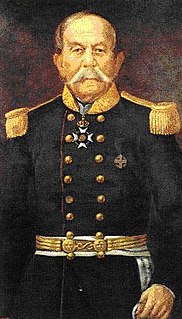 W
WKonstantinos Vlachopoulos was an armatolos, army leader of the Greek War of Independence and the first Greek leader of the Hellenic Royal Gendarmerie. He was also a member of the Filiki Eteria, a secret organization whose purpose was to overthrow the Ottoman rule of Greece and establish an independent Greek state.
 W
WEvangelis or Evangelos Zappas was a Greek patriot, philanthropist and businessman who spent most of his life in Romania. He is recognized today as one of the founders of the modern Olympic Games, who sponsored the Olympic Games of 1859, 1870, 1875, and 1888 and preceded the Olympic Games that came under the auspices of the International Olympic Committee. These Games, known at the time simply as Olympics, came before the founding of the International Olympic Committee. The legacy of Evangelis Zappas, as well as the legacy of his cousin Konstantinos Zappas, was also used to fund the Olympic Games of 1896.